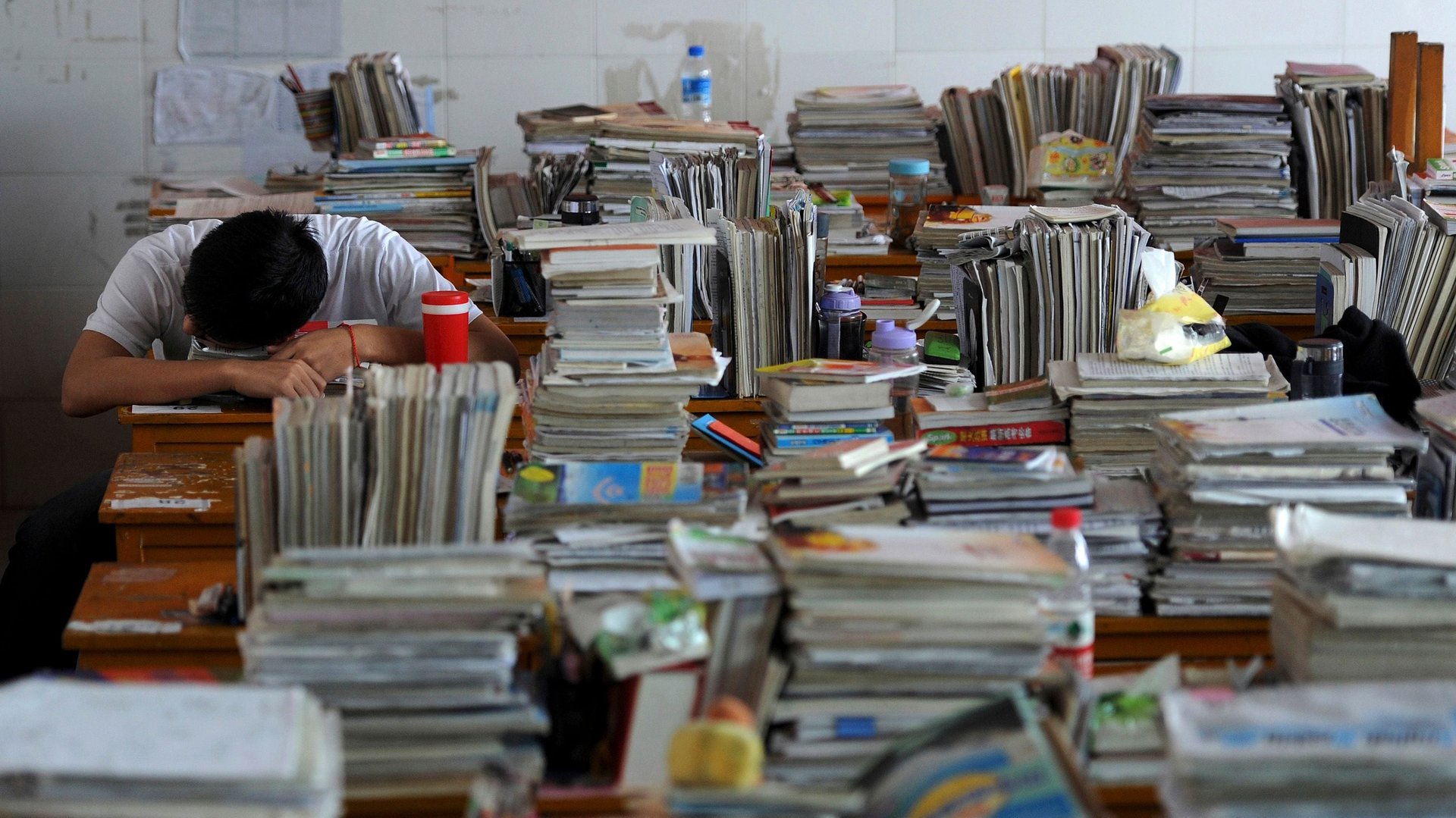This year, passing China’s biggest exam involves waxing eloquent about Xi Jinping’s philosophy
This morning in China more than 9 million students across the country took the notoriously grueling college-entrance exam that will, for many, set the course of their lives. The first part, anyway—part two of the gaokao, as it’s known in Chinese, comes tomorrow.


This morning in China more than 9 million students across the country took the notoriously grueling college-entrance exam that will, for many, set the course of their lives. The first part, anyway—part two of the gaokao, as it’s known in Chinese, comes tomorrow.
The morning session was about Chinese language and literature and entailed writing an 800-character essay—a test of one’s writing and argument skills. In recent years, topics have ranged from choosing a life path to describing one’s feelings about a buzzword. Politics have not been front and center.
The big topic this year? The philosophy of Xi Jinping. Of the nine essay questions asked across the nation—there are some regional variations—five were directly related to propaganda terms put forward by the Chinese president. The questions were published today by state media (link in Chinese), shortly after the test. The ideology-oriented themes echoed those from the era of Mao Zedong, who once terminated the gaokao for a decade as part of a movement against intellectuals.
In Beijing, students were asked to choose one of two assigned titles. The first was “New youth in the new era—talking about growing up in the development of the Motherland.” The term “new era” was used by Xi during a key Communist Party event last fall, and is associated with the idea of China taking on a global leadership role. The other, “The picture of green mountains and clear water,” was inspired by a speech Xi gave in 2005 about environmental protection (link in Chinese).
In the eastern Zhejiang province, where Xi served as party chief for five years, students were asked to write an essay about Xi’s “Zhejiang spirit,” which involves hard work and innovation.
Other questions posed to students today also involved politics. One asked students to write a letter to the year 2035, when China will “basically have realized socialist modernization,” according to the Communist Party. The prompt stated, “You are walking and growing with China of the new century, and chasing and realizing dreams in China’s new era.” The other asked students to write about the nation’s reform and opening-up policy, now in its 40th year, with the prompt giving three propaganda slogans for inspiration:
- Time is money, efficiency is life. —Deng Xiaoping, Shenzhen, 1981
- Green mountains and clear water are equal to mountains of gold and silver. —Xi Jinping, Zhejiang, 2005
- We, the new generation, should accomplish our new Long March. —Xi Jinping, Xiongan, 2017
The injection of politics into the questions harkens back to the gaokao’s essay topics in the 1950s and 1960s (link in Chinese). For example, 1958’s test asked students to write an essay praising Mao’s Great Leap Forward, a radical economic transformation program that later led to the deaths of tens of millions through famine.
It’s perhaps little surprise. Xi has become the most authoritarian Chinese leader since Mao. His latest power move was to scrap the presidential term limits in March, effectively allowing himself to be a ruler for life.
“If you have the party in your heart, you’ll get a good score,” one person commented (link in Chinese) on microblogging site Weibo. Another wrote (link in Chinese), citing from French author Stendhal’s The Red and the Black, “Politics is a stone tied round the neck of literature which submerges it in less than six months.”
Ziyi Tang contributed reporting.